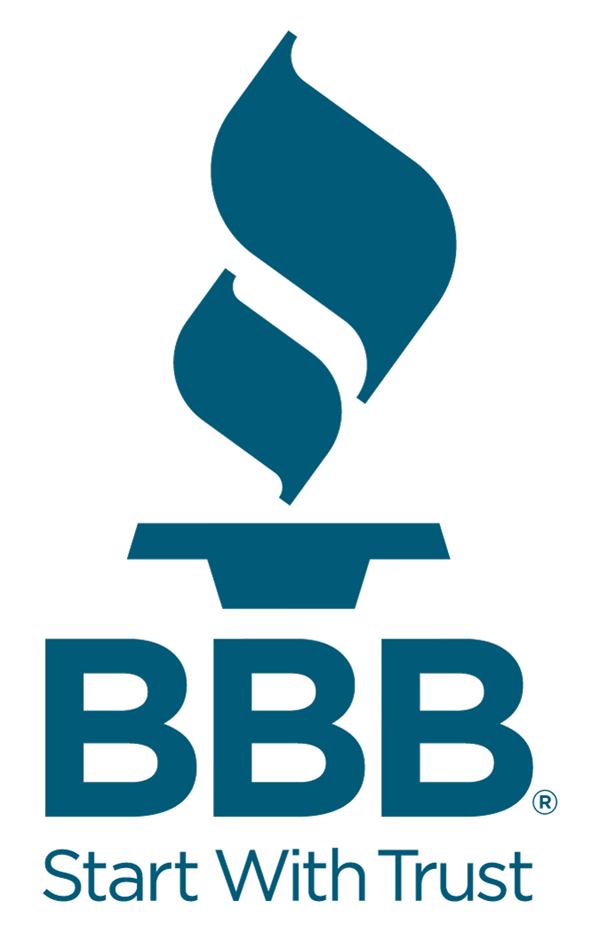More Like C- C- C-


The Better Business Bureau, better known as the BBB, is a non-profit organization which, per its website, “helps people find and recommend businesses, brands and charities they can trust.” As Wikipedia points out, the notion that the BBB is funded by the government is a misconception: “the Better Business Bureau is not affiliated with any governmental agency” but is, rather, a stand-alone organization which relies on donor money and membership fees. The BBB has been successful in raising money that way. It has a sizable war chest — the organization has annual revenue of $215 million, according to Wikipedia — which it uses to rate and review hundreds of thousands of businesses throughout the United States. It typically does so with standard letter grades — A+ to F. If an organization gets an A-range grade, that’s a sure sign that the company being rated is an upstanding member of society.
Or that it’s a terrorist organizations or a KKK-wannabe.
Wait, what?
The way the Better Business Bureau is supposed to work — and the way it typically operates, to be fair — is based on a straightforward complaint-and-response system. If you, the consumer, think you’ve been wronged, complaining to the BBB is a good way to get service because the BBB will penalize the business if that complaint is ignored. Constant and/or unresolved complaints result in lesser grade than otherwise, in theory at least.
But sometimes, there’s more to the story. In 2009, the LA Times reported that the Better Business Bureau’s grading system cared — a lot — about whether the business paid to be “accredited” by the Bureau; that’s BBB-speak for whether the company paid a membership fee to the Bureau. If you paid the fee, you were significantly more likely to get a better grade from the BBB, despite the latter’s protestations:
The private, nonprofit Better Business Bureau insists there’s no “pay-for-play” component to its new rating system.
But a random search of the organization’s database of about 4 million North American companies seems to show that the roughly 400,000 accredited businesses, even those that get numerous complaints, very often receive higher grades than unaccredited companies with spotless complaint records.
In November of 2010, ABC News tried to verify the problem and had no problem doing so — they just took a news crew to small businesses in the Los Angeles area and filmed as the owners called the local BBB. Per the subsequent report, “two small business owners in Los Angeles were told by Better Business Bureau tele-marketers that their grades of C could be raised to A plus if they paid $395 membership fees.” And ultimately, the BBB admitted that while accreditation wasn’t dispositive in the ratings system, it was a factor.
And then, it got worse.
To demonstrate how porous the grading system was, a group of BBB critics decided to push the limits of good taste and good ratings alike.The above-mentioned ABC News reported that the group “paid $425 to the Better Business Bureau and were able to obtain an A minus grade” for their made-up, do-nothing company: Hamas. Yes, the terrorist organization. (That link goes to a page describing the ruse, not Hamas’s website.)
While that was clearly a mistake on behalf of the BBB, the group of Bureau skeptics wanted to push the point further. So they also registered another company — this one, with a real, active and sadly vibrant website — in hopes of achieving a similar grade. And this time, the rating raiding party received an A+ grade. The business? It was an organization called Stormfront, a prominent website for white supremacists and neo-Nazis. To further show that the BBB didn’t spend a lot of time reviewing the business, the application was filed by someone named “Aryan Whitney,” an obviously fake name — except to the BBB person who gave Mr. Whitney an A+.
Finding this all absurd, the then-attorney general of Connecticut Richard Blumenthal threatened the BBB with a lawsuit over the shenanigan. As Slate reported, a week later, the BBB capitulated: “It agreed to end its practice of giving additional rating points merely for being a member and promised to engage a third party in a review process.”
Bonus Fact: “BBB” and “KKK” aren’t “acronyms.” Dictionary.com defines an acronym as “a word formed from the initial letters or groups of letters of words in a set phrase or series of words and pronounced as a separate word,” but of course, neither “BBB” nor “KKK” meet that “pronounced as a separate word” requirement. A term referenced by its initials is called an “initialism,” and while acronyms are a type of initialism, not all initialisms are acronyms.
From the Archives: Inside the Button: It’s about the BBB, but in this case, BBB stands for “belly button biodiversity.”
Take the Quiz: What grades did Harry Potter get on his O.W.L. exams? (If you think this has nothing to do with the story today, you’re basically right, but it was really hard to find something that did. So I went with something that was about grades which were totally made up. Get it?)
Related: “How To Complain For Fun And Profit: The Best Guide Ever To Writing Complaint Letters” by Bruce Silverman. It has 4.3 stars on 12 reviews, but if you don’t like the book, you can probably write to the author to demand a refund.
